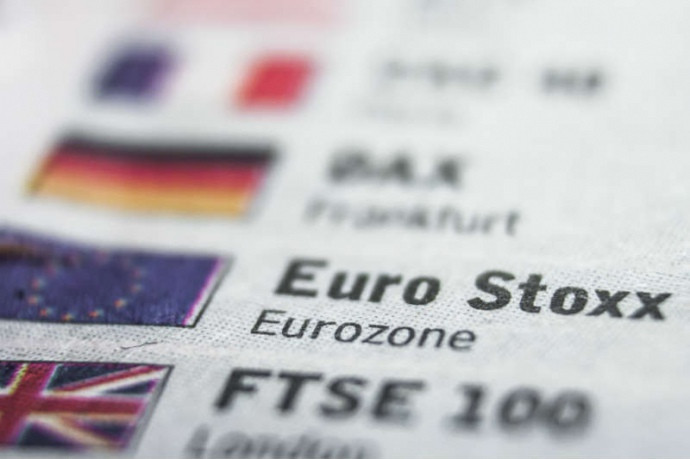On Tuesday, the key European stock indices mostly declined. Only the French CAC 40 was trading in the green zone. Traders focused their attention on the corporate earnings reports for the third quarter of 2022 from largest European companies. They are considered an important indicator of business conditions in the eurozone.

At the time of writing, the composite indicator of Europe's leading companies STOXX Europe 600 rose by 0.3% to 403.03 points.
The French CAC 40 gained 0.36%, the German DAX lost 0.41%, and the British FTSE 100 fell by 0.35%.
Top gainers and losers
The stocks of British banking group HSBC Holdings dropped by 6.7% after the news of its net profit cut by 46% in the third quarter.
The stocks of German SAP SE, the world's biggest producer of software for business management, rose by 3.6%. Earlier, the company reported a 15% increase in revenue to 7.8 billion euros in July-September 2022. The final indicator significantly exceeded the preliminary forecasts of the market.
The market capitalization of British retailer THG Plc soared by 19%.
The stocks of Swedish streaming service Viaplay plummeted by 28%.
The stocks of Swiss bank UBS Group AG went up 1.7%. In the third quarter, the company recorded a net profit and revenue above the preliminary estimates of experts, while its final figures dropped by 24% and 10% respectively.
Quotes of French telecommunications operator Orange SA fell by 2.5% despite an increase in quarterly revenue in July-September.
The market capitalization of French spirits producer Remy Cointreau SA sank by 6.1%. Meanwhile, the company recorded a sharp increase in revenue in the first half of fiscal 2022 amid weakening of the euro against the US dollar and Chinese yuan.
Market sentiment
In addition to quarterly reports from top European companies, on Tuesday stock market participants analyzed the latest statistics from Germany. According to data from Munich-based Ifo Institute for Economic Research, the Business Climate Index in Germany fell to 84.3 points, its lowest level since May 2020, from a revised reading of 84.4 points in September. At the same time, analysts forecasted the decline of the Business Confidence Index in Germany to 83.3 points.
This week, investors are awaiting the ECB meeting scheduled for Thursday. Analysts forecast that the regulator will aggressively tighten its monetary policy amid a permanently rising inflation rate in the EU countries.
Previous trading results
On Monday, European stock indexes closed in the green zone. Investors discussed the prospects of further monetary policy tightening by the European Central Bank and analyzed the outcome of the UK political crisis.
At the previous close of trading, the composite indicator of Europe's leading companies STOXX Europe 600 rose by 1.4% to 401.84 points. The French CAC 40 advanced by 1.59%, the German DAX added 1.58%, and the British FTSE 100 gained 0.64%.
The stocks of Dutch producer of consumer goods and medical equipment Philips fell by 1.5%. The company reported a net loss in the third quarter of fiscal 2022, which was worse than the analysts' preliminary forecast. In addition, Philips management said on Monday that it planned to cut operating costs, including laying off 4,000 employees globally.
Quotes of Dutch technology investor Prosus collapsed by 11% amid concerns about the growth of the Asian market.
The market capitalization of Swiss bank Credit Suisse rose by 2.5% after the news came of a €230 million payout to settle a case of irregularities in cross-border transactions.
The stocks of British online fashion and cosmetics retailer Asos Plc soared by 4.5%.
The stocks of British educational company Pearson PLC surged by 8.7% on revenues in January-September of fiscal year 2022.
The stocks of Swedish air conditioner manufacturer Beijer Ref AB gained 9.23%.
The market capitalization of Danish manufacturer of medical diagnostic equipment Ambu AS jumped by 6.7%.
On Monday, European stock market participants focused on the EU statistics. According to preliminary estimates, the Composite PMI in Germany declined to 44.1 points in October from 45.7 points in September. At the same time, the October figure was the lowest since early 2020.
Meanwhile, the Composite PMI in France fell to 50 points in October from 51.2 points in September, the lowest in two years and seven months.
The Composite PMI in the UK dropped to 47.2 points from 49.1 points, while the manufacturing PMI sank to its lowest since May.
According to a preliminary estimate by S&P Global, the Composite PMI for 19 EU countries fell to 47.1 points in October, down from 48.1 points in September. The rate of decrease in the PMI for 19 eurozone countries accelerated to the highest level in two years. Notably, the value of the index below 50 points indicates a decline in business activity and the continued risk of a recession amid the struggle of households with the cost-of-living crisis.
Meanwhile, the EU manufacturing PMI in October plummeted to a May 2020 low of 46.6 points from 48.4 points in September, while the Services PMI index fell to 48.2 points from 48.8 points in September.
During the trading session, British traders focused on the race for taking the post of the UK prime minister.
On Sunday, the local media reported that UK former Prime Minister Boris Johnson had pulled out of the contest to become the next leader in the British government. The night before, the parliamentary leader of the House of Commons Penny Mordaunt also withdrew from the race. Therefore, UK former finance minister Rishi Sunak automatically became the prime minister of the country.
On Monday, the key driver for the European stock indices became signals that the Federal Reserve might lower the rate of interest rate hike as early as December 2022.





















